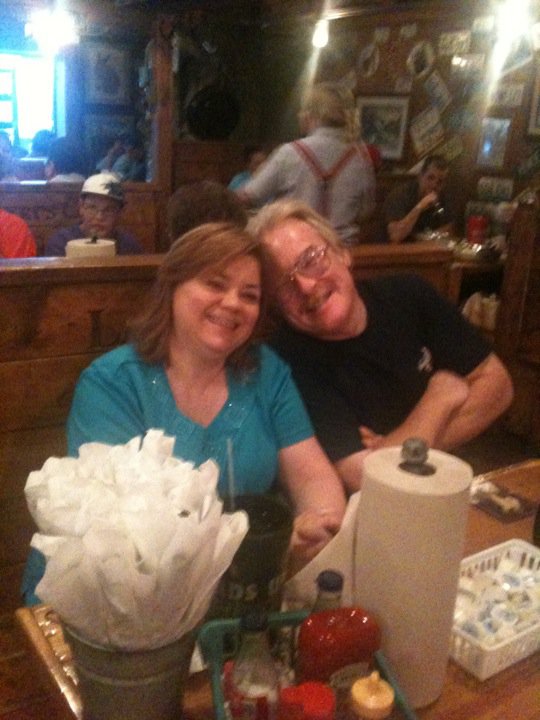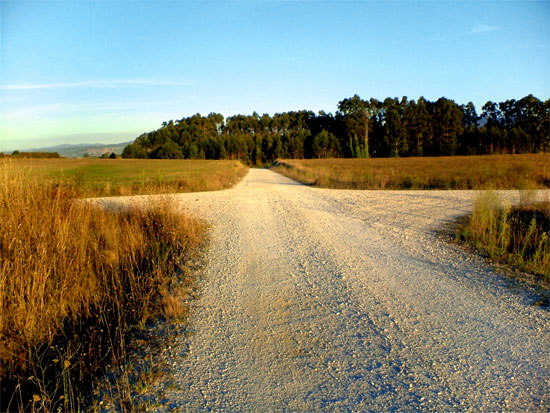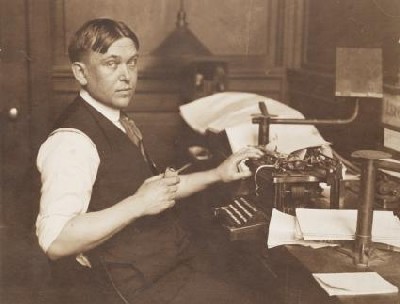 I left my home town a few months after graduating from high school in 1974, and since then I’ve only returned as a visitor. Not so David, my younger brother, who chose to settle in Smalltown, U.S.A., and has never lived anywhere else. He and his wife live three blocks from my mother’s house. If there’s such a thing as a model citizen, he fills the bill with room to spare. Among countless other valuable things, he’s served two terms on the city council and is a member of the board of trustees of his church, and whenever anyone in Smalltown now has occasion to mention the name “Teachout,” they usually mean him, not me.
I left my home town a few months after graduating from high school in 1974, and since then I’ve only returned as a visitor. Not so David, my younger brother, who chose to settle in Smalltown, U.S.A., and has never lived anywhere else. He and his wife live three blocks from my mother’s house. If there’s such a thing as a model citizen, he fills the bill with room to spare. Among countless other valuable things, he’s served two terms on the city council and is a member of the board of trustees of his church, and whenever anyone in Smalltown now has occasion to mention the name “Teachout,” they usually mean him, not me.
I’m proud of my brother’s achievements, and more than a little bit jealous of them. In particular I envy his deep roots in the soil of Smalltown. I can’t claim to feel that way about New York City, where I’ve lived for the past quarter-century but to which I have no special attachment save for my love of certain people who live there.
For me, “home” is where Mrs. T is, and that changes from day to day. We moved to a new apartment last November, but we’ve spent so little time there that most of our belongings are still packed in cardboard boxes. So far this year we’ve “lived” in upper Manhattan, rural Connecticut, various parts of Florida, and a string of hotel rooms in Chicago, San Diego, and Washington, D.C. Right now we’re in Smalltown, but we’ll be driving up to St. Louis on Thursday, and a week and a half after that we’ll be on our way to Pittsburgh.
Truth to tell, I’m about as close to rootless as you can get, and because I come from Smalltown, where people tend as a rule to grow where they’re planted and stay where they’re put, this rootlessness has always seemed strange to me. I ought to feel at home somewhere or other, but when I moved away in 1974, I lost the sense of belonging that I possessed throughout the first eighteen years of my life, and since then I’ve never managed to recapture it.
This came as a surprise to me. I always figured I’d find a job in town, marry a Smalltown girl, start a family, and become a pillar of the community. My brother did those things, but I pulled up stakes and became a rambling man, moving from city to city in search of an identity that it took me the better part of a lifetime to find, insofar as I can be said to have found it. At various times in my life I expected to become a concert violinist, a lawyer, a high school teacher, and a psychotherapist, none of which I ended up doing. Instead I’ve paid the rent by working as a bank teller, a jazz bassist, a magazine editor, an editorial writer, a biographer, and a drama critic.
 My brother and I, in short, have both led typical American lives. It is fully as American to stick close to home as it is to become a wanderer, but it’s the wanderers who get most of the press, perhaps because we’re the ones who write it–and I’m not so sure it should be that way. I left home to find myself, but my brother didn’t have to leave home because he knew who he was. I call my mother every night, but he sees her every day. I write books, but he has a grown daughter. I like to think that my work may ultimately prove to have some lasting value, but I’m sure that he’s done more to make the world a better place.
My brother and I, in short, have both led typical American lives. It is fully as American to stick close to home as it is to become a wanderer, but it’s the wanderers who get most of the press, perhaps because we’re the ones who write it–and I’m not so sure it should be that way. I left home to find myself, but my brother didn’t have to leave home because he knew who he was. I call my mother every night, but he sees her every day. I write books, but he has a grown daughter. I like to think that my work may ultimately prove to have some lasting value, but I’m sure that he’s done more to make the world a better place.
Might I have been happier had I stayed in Smalltown? That is, needless to say, the least answerable of questions, though Stephen Sondheim went part way towards answering it in a song from Follies called “The Road You Didn’t Take”: The choices that you make/Aren’t all that grim./The worlds I’ll never see/Still will be around,/Won’t they?/The Ben I’ll never be,/Who remembers him? Nobody remembers the nonexistent Terry Teachout who stayed home and became a schoolteacher, but everybody in Smalltown, U.S.A., knows his real-life brother David, who had the luck to know which road to take–and the sense to take it. As much as I love my life, I’ll always wonder which one of us made the better call.

 A colleague of mine has just published his first
A colleague of mine has just published his first